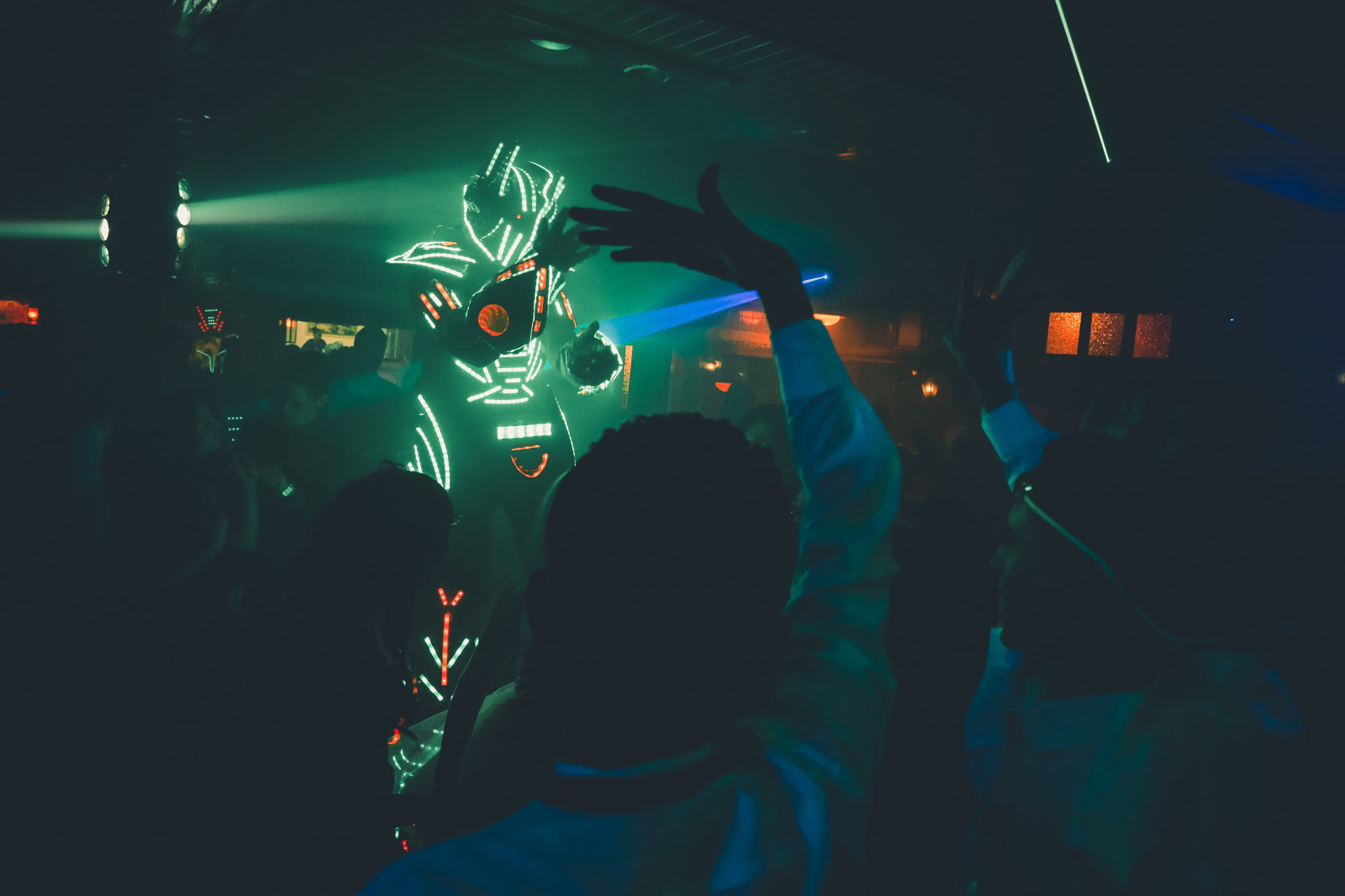Why AI music may make fandom even more important

Photo: Lucas Pezeta

Artificial intelligence (AI) was as hot a topic as ever at last week’s SXSW conference, where debate swirled around how human artists will compete with AI-generated music. As more parts of music-making involve AI assistance, this distinction between “AI” and “human” music may soon become as irrelevant as music created on a laptop versus recorded in a studio. Regardless, anxiety about competition is high, and it is not hard to see why. Artists are already dealing with massive oversaturation from other humans, and streaming companies like Anghami and Tencent Music Entertainment are now pumping out hundreds of thousands of AI-generated tracks.
This debate often centres around whether AI-generated music can ever replicate the emotional connection to human-made music. What we are really talking about is fandom.
Fandom is not (just) about the music
Enjoying a song makes someone a listener. But a listener typically becomes a fan only once they identify with the context beyond the music — things like the artist’s personality, values, backstory, and aesthetic. This is because fandom is the symptom of seeing one’s identity (real or aspirational) reflected in another person. This shared identity is also what bonds fans together into communities. Billie Eilish fans do not only like the sound of her music; they also identify with her grungy style and punkish attitude. For BTS fans, the vast, supportive community of ARMY members is likely just as important to their devotion as the music itself.
So while music may be the first spark, it is often insufficient for striking the flame that is fandom. AI-generated music can surely compete on a listening basis, but can it compete on a fandom basis?
Generating fandom
TL;DR: The answer is probably yes. Before we even talk about AI, it is often not artists themselves who build fandom, but their marketing and label teams. Of course, marketers do so based on the artist’s persona, but in this sense, fandom is already “generated” — via smart use of social media, algorithms, and other digital technology. Why could marketers not simply do the same with a fictional, and perhaps AI-generated, persona?
Featured Report
India market focus A fandom and AI-forward online population
Online Indian consumers are expected to be early movers. They are high entertainment consumers, AI enthusiasts, and high spenders – especially on fandom. This report explores a population that is an early adopter, format-agnostic, mobile-first audience, with huge growth potential.
Find out more…They already are. Acts like K/DA and Luo Tianyi demonstrate that fandom can be built around virtual artists, similar to the way audiences feel fandom towards fictional characters in TV and film (e.g., Game of Thrones, Marvel, Star Wars). In today’s digital-first-world, not only do we increasingly build our own identities online, but our touchpoints for fandom of others are also mostly virtual, from live streams to TikTok videos to memes. Currently, actual people are dreaming up the backstories and personalities for most virtual acts. But in time, AI may be able to take over this role, or at least assist with it.
The ultimate differentiator
This does not mean fandom will lose value — quite the opposite. Fandom will likely become even more important, for AI and human music alike. If we assume that AI will eventually be able to make high-quality music, and everyone has access to roughly the same tools, then fandom — which is already somewhat divorced from musical quality — becomes the only way to stand out. Artists may even begin using AI to build fandom, as this technology could help them manage communities and generate assets like video game skins and social content.
Success for both AI and human music (and the crossover) will increasingly revolve around what makes fandom count, which means focusing on questions like:
What does listening to this artist say about one’s identity?
What scene(s) does this artist resonate with, and why?
What is the community that surrounds the artist or their scene?
The good news is that this strategy fits into the framework that has long been developing. In today’s oversaturated, hyper-fragmented entertainment world, nurturing core fandom is a winning strategy, which is why fandom is suddenly the new buzzword among everyone from record labels to streaming services. Just get ready for AI to start fighting for it, too.

There is a comment on this post, add your opinion.